Martian house on Bristol's harbourside unveiled
- Published
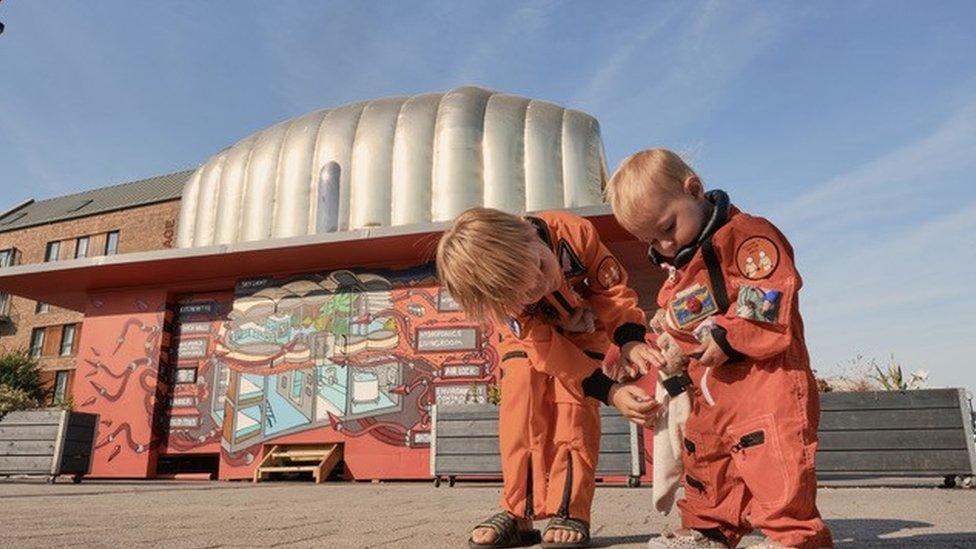
The artists behind it thought it might just be them in their back garden, but the project has since taken off
A gold inflatable Martian House designed to "withstand life on Mars" has landed in Bristol.
The two-storey house is powered by solar panels and designed to be lightweight to withstand the environmental challenges that would be faced on Mars.
It comes after the architects behind the British Antarctic Survey station were given planning permission in 2020.
It is part of a five year project led by artists Ella Good and Nicki Kent.
The unusual building will be in place until the end of October.
Ms Kent and Ms Good said: "This project is a place for research and experiments about the future.
"Using Mars as a lens because of its resource-limited nature helps focus our conversations around what we need, and how we want to live."
The Martian house has brought together artists, scientists, architects, engineers and the public.
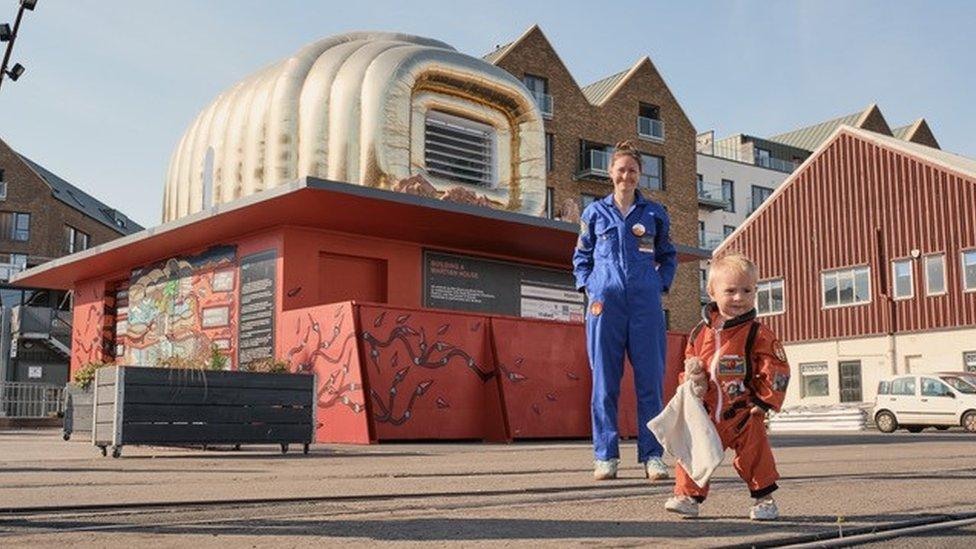
Families are invited to attend a series of drop-in workshops between 17- 31 August
Ms Kent said they had worked with everyone from school children to rocket scientists.
"When we began the project we thought it might just be the two of us building something in our back garden," she said.
"But people got really excited and wanted to help us and it's turning into the biggest and most exciting version of what we'd hoped for."
Despite working with a "fraction of Nasa's budget", the two-storey dwelling boasts a hydroponic living room - filled with plants - and a private living space.
The upper level, designed to sit on a Martian landscape, is made from inflatable gold-coated foil which is light enough to transport to Mars and can be filled with Martian soil to provide protection from radiation.
The lower level is designed to be built below ground.
Hugh Broughton, director of Hugh Broughton Architects, said: "This is the first Martian House to receive a building consent and it is so exciting to see it built in Bristol."
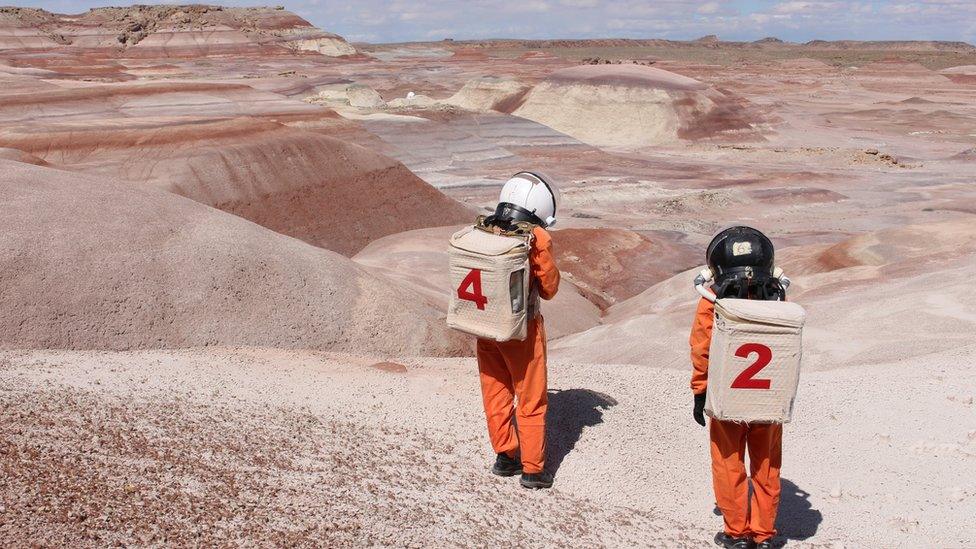
Artists Ella Good and Nicki Kent visited the Mars Desert Research Station in Utah as part of the project
Mr Broughton said it had allowed him to let his "imagination go mad but within boundaries".
"The envelope and life support systems are being designed by specialists in the fields of space exploration, extreme environments and sustainability - with the interiors being designed by the public," he said.
"It's an alternative approach to space design which represents the interests of everyone, not just governments and the super-rich."
Dr Lucy Berthoud, professor of space engineering at the University of Bristol, said it was "really important" artists and scientists worked together.
"Space exploration is for all of us and we will need lots of different skills to explore and live on Mars," she said.
Families are invited to attend a series of drop-in workshops between 17- 31 August and public viewings are available on the lower ground floor every Wednesday and Saturday from 31 August - 16 October.

Follow BBC West on Facebook, external, Twitter, external and Instagram, external. Send your story ideas to: bristol@bbc.co.uk , external
Related topics
- Published27 November 2020
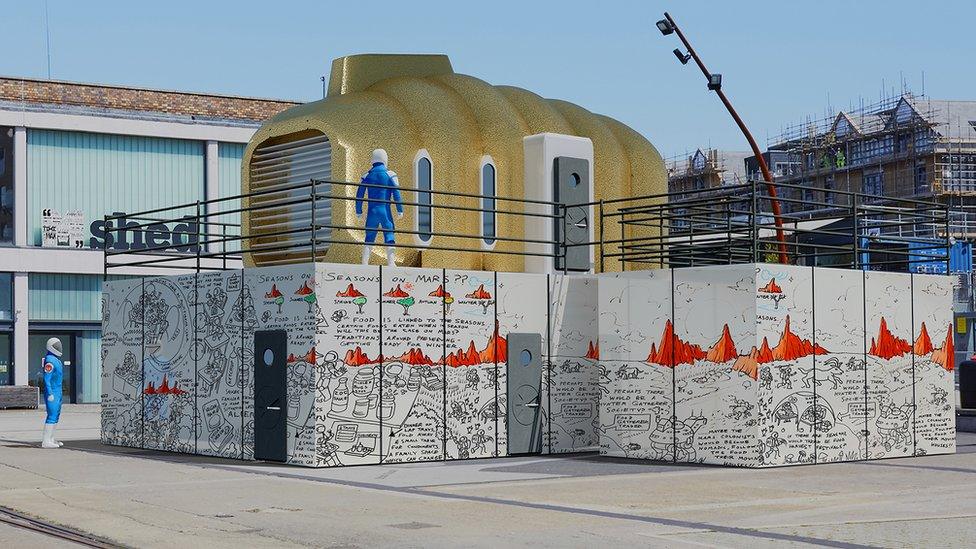
- Published4 March 2016
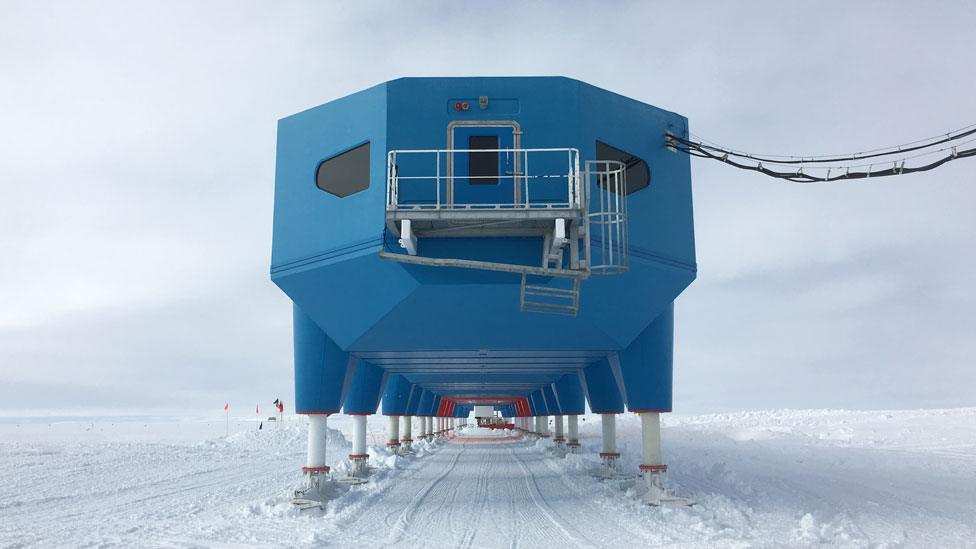
- Published6 February 2013
